Why Are They Better Than Me?
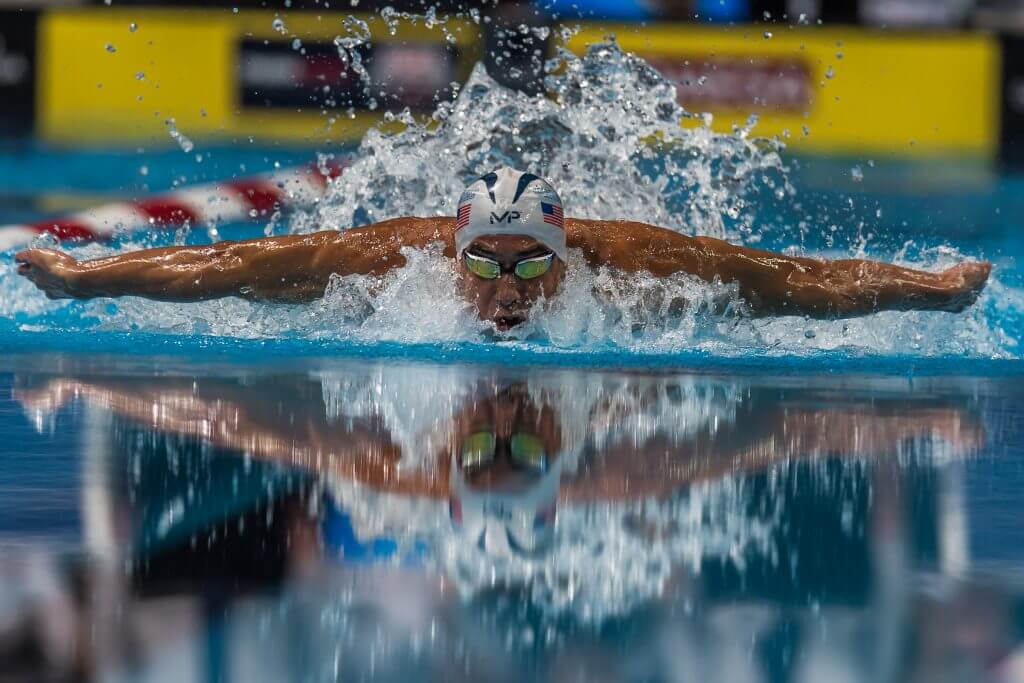
By Alice Reeves-Turner, Swimming World College Intern.
It’s a question all swimmers have asked themselves at one stage in their careers– a question we ask as we push ourselves to the limit but still finish behind those who are doing exactly the same training. Why are they better than me? There are multitude of aspects of a swimmer’s life to explain this question, all which lead to stronger performance.
Genetics
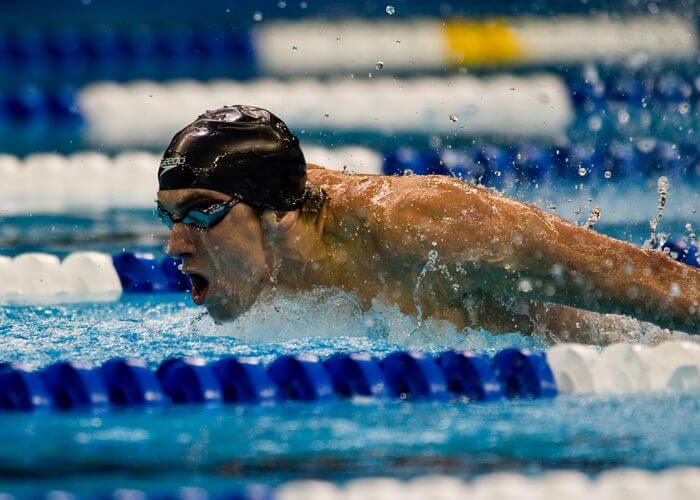
Photo Courtesy: Peter H. Bick
It is often discussed in the media around the Olympics– ‘the perfect triangular shape’ of the swimmer’s body which is acquired through hard training. Though this long-torso’ed, broad-shouldered, narrow-hipped physique is gifted to some swimmers giving them an edge over non-swimmers, there are some simply born with superior genetic makeup. Take Michael Phelps– standing at 6-foot-4, Phelps already has a genetic advantage over others in the pool due to his height, however he adds to this through a number of things.
Firstly, while most have a wingspan that matches their height, Phelps’ wingspan is a full three inches longer. This added wingspan creates a greater reach and depth to his stroke. To add to this, Phelps is double-jointed in his ankles, elbows and chest meaning his body is able to move with fish-like undulation, giving him an added edge over others. The final genetic advantage Phelps possesses is reduced lactate levels. Phelps has been scientifically proven to produce less than half of the lactic acid of his rivals. As a result, he recovers quickly and can burst back with the same standard of race again and again.
Diet

Photo Courtesy: Maxpixel
Swimmers who consume up to 12,000 calories a day (namely Adam Peaty and Phelps), have become famous for the ridiculous amount of food they are able to/need to consume so as to keep up the high-intensity levels to which they train. However, a high-calorie diet will have no effect on performance if an individual is eating the wrong things. Swimmers should be quite specific in what they eat making sure to follow either a food plan set out by their club. A good diet fuels a swimmer to perform better than those around them who are eating plenty of calories but of the wrong foods.
Coach
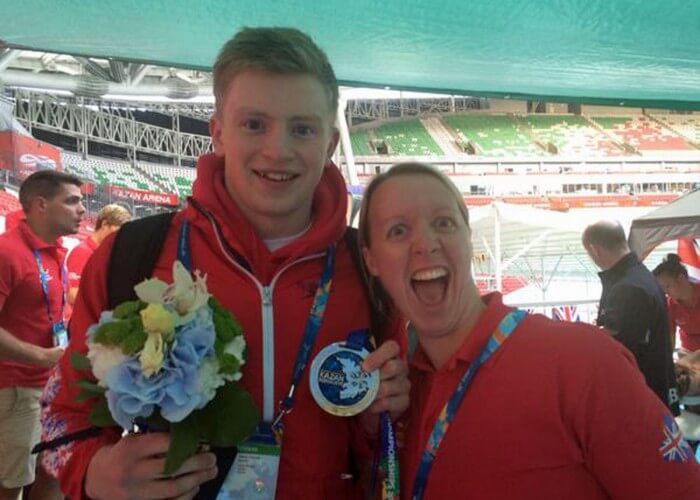
Photo Courtesy: Melanie Marshall/Twitter
The person who is with you every step of the way, through every bad training session and every good one, through every single competition no matter what the result: coaches are always key in a swimmers career in terms of technique and improving fitness. But a coach provides far more than just a set of drills for you to complete.
Studies have found that high anxiety levels in coaches lead to bad performance in athletes. This means with a calm and relaxed coach a swimmer will perform far better overall then those met with anxiety and aggression. A good relationship with a coach and high performance can be seen to relate into top level swimming. Adam Peaty‘s amazing relationship with his coach Melanie Marshall is renowned for its positivity. Peaty has often described Marshall as “one of the strongest people I’ve ever met”.
Facilities
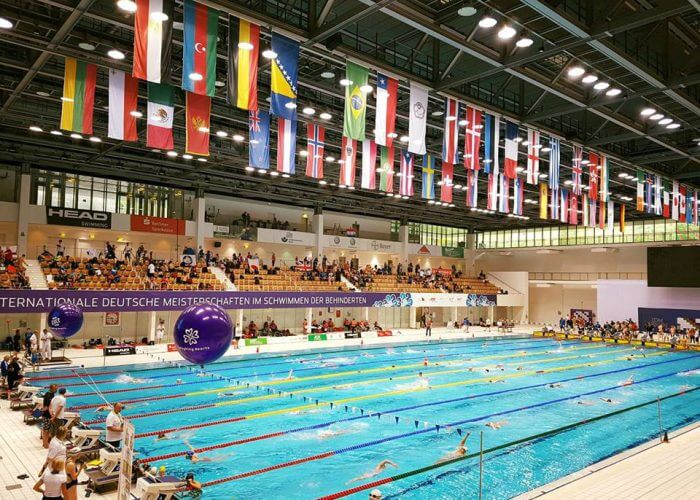
Photo Courtesy:
Every swimmer has entered a pool which made him or her gasp in horror. Some are dank, some are small and they have an odd smell which makes you wonder if they have ever been cleaned or if the chlorine levels are quite right. Then, as you wonder how you will race in this pool, you realize a team must train here! Although a pool with correct depth and length means that a swimmer can train just as hard as those in a newer pool, having to train in an older pool can cause a dedicated swimmer to fall short of their potential. Many are not able to practice with modern equipment and risk being forced to miss training as older pools tend to “breakdown” more frequently than others.
Injury

Photo Courtesy: Dr. G John Mullen
It’s the thing that can ruin even the best and most dedicated swimmers career, and can leave many falling behind those who they could previously match in speed. Injuries are a major problem for many a swimmer, and in many cases they can be the reason to explain why someone else is able to achieve more then another swimmer.
Injuries, however, are more often than not treatable and/or avoidable. To avoid injury in the first place, a swimmer should be vigilant about their pre-pool stretching and flexibility. By taking care of their bodies before a workout, swimmers will increase their flexibility and movements are less likely to cause injury. Despite stretching, there are cases where injury can’t be helped. To prevent this from becoming a chronic problem, physiotherapists should be used and listened to. Post-injury care is boring but can make the difference between a swimmer achieving or falling short in the sport.
Expenses
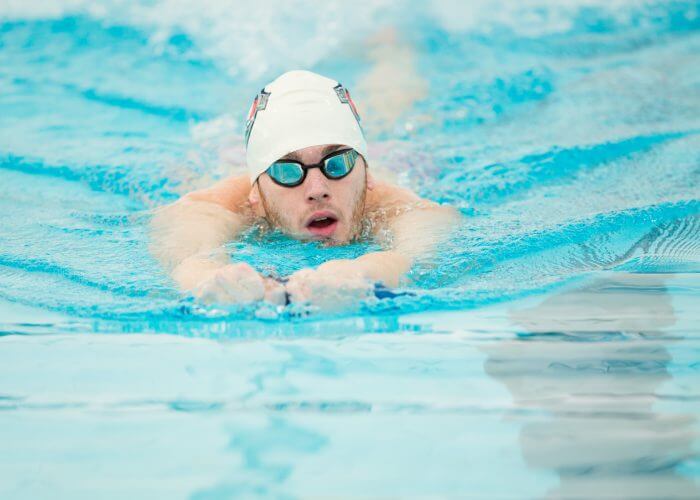
Photo Courtesy: Kevin D. Liles-USA TODAY Sports
Swimming is an expensive sport. Fees to train cost far more than what many expect, and with the added costs of meets a number of swimmers struggle to afford good quality equipment. Racing suits, kick boards, pool buoys, snorkels, hand paddles and goggles are all what is expected for just training and all add up in price very quickly. Then there’s the hundreds of dollars that go towards traveling to meets. These expenses can leave many less well-off swimmers who train just as hard and have the same raw talent achieve less then others purely because they cannot afford the same equipment and meet experiences as teammates who are wealthier or have sponsorships.
Mentality
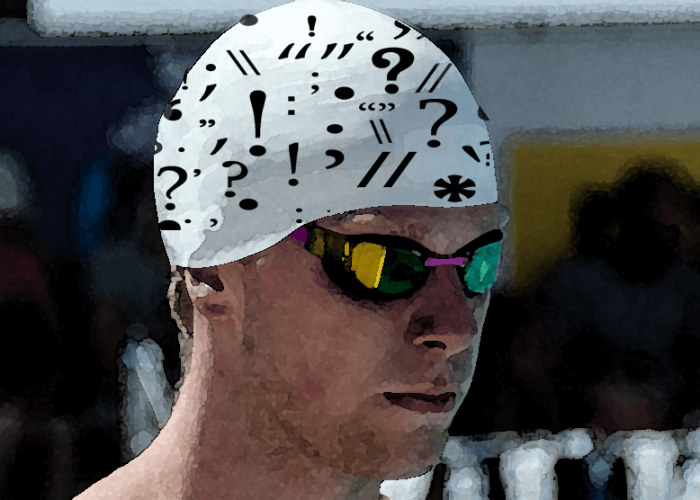
A good mentality is key for fast swimming. Visualizing your own success in swimming has been proven to make lofty goals in the pool more attainable. So, the next time you begin to question why someone who should be at the same level as you is better than you, simply imagine yourself beating them!
All commentaries are the opinion of the author and do not necessarily reflect the views of Swimming World Magazine nor its staff.




I Corinthians 9:26 ^
So then I am running, not uncertainly; so I am fighting, not as one who gives blows in the air:
Yess what…
Great article.
What about how hard you train? Training really hard probably won’t make you the next Michael Phelps, but it certainly affects whether you can achieve your own potential.
Une vrai fraude ce sport Andrea Terriault
Injury tabarnak
The pool thing is kinda dumb. Many great athletes come from nasty pools. If a kid kill it everyday in a nasty pool, they can swim anywhere. Give a kid a nice pool all the time, then compete in a nasty one – instant negative thoughts.
Great article. Also, “less *than others”, & “achieve more *than another swimmer”.
Jemma Lindquist Neelam Lindquist